Hybrid cars have revolutionized the automotive industry, offering a bridge between traditional internal combustion engines and the greener electric propulsion. A pivotal component of this change is the battery technology that powers these vehicles. The battery in a hybrid car is not just a storage unit; it’s the heart of the electrical system that determines the car’s efficiency, lifespan, and environmental footprint. As a car owner or an eco-conscious individual, understanding the types of batteries used in hybrids is crucial for making informed decisions and appreciating the technology behind these vehicles.
In this comprehensive exploration, we delve into the two primary types of hybrid car batteries, compare their technologies, discuss the associated benefits and drawbacks, and speculate on the future of hybrid batteries. Let’s begin by dissecting the current duel between Nickel-Metal Hydride and Lithium-ion batteries in the hybrid world.
Types of Batteries Used in Hybrid Cars
Nickel-Metal Hydride (NiMH) Batteries
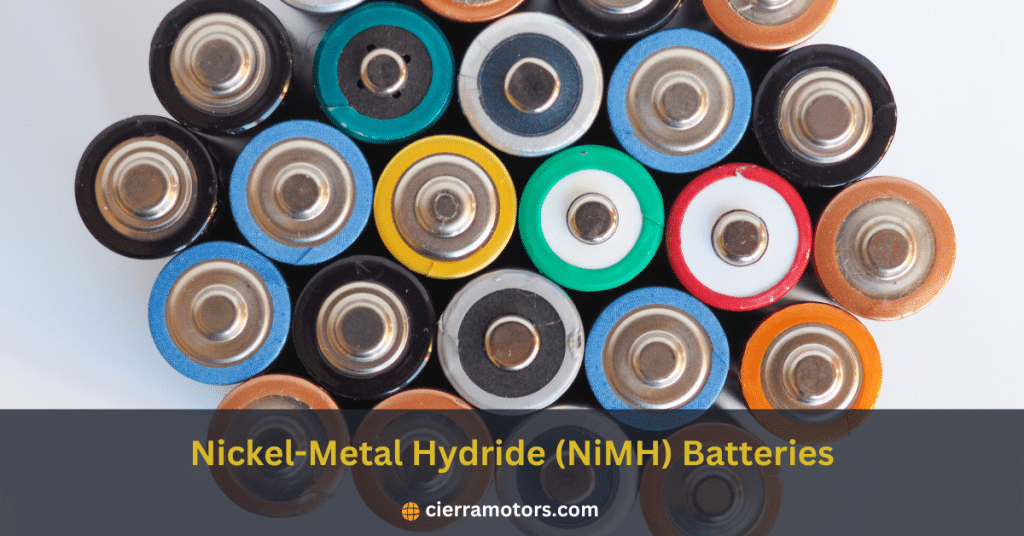
- Nickel-Metal Hydride (NiMH) Batteries
NiMH batteries were the pioneers in hybrid car battery technology, known for their reliability and long lifespan. They are a step up from the older nickel cadmium (NiCd) batteries, offering higher energy density and being more environmentally friendly due to their lack of toxic cadmium.
For example, the Toyota Prius, one of the first mass-produced hybrid cars, used NiMH batteries in its early models. The technology has proven itself, demonstrating respectable performance under various driving conditions.
Lithium-ion (Li-ion) Batteries
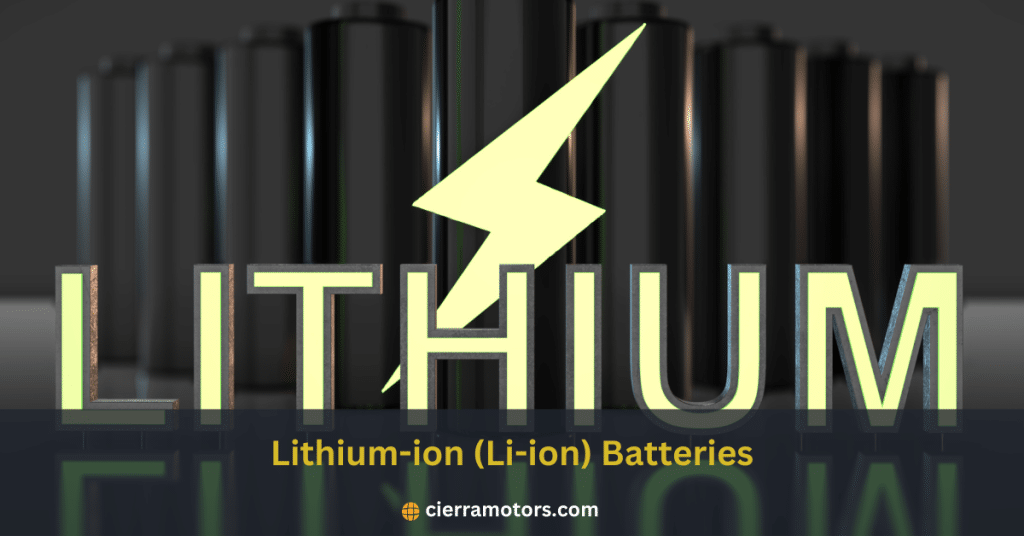
- Lithium-ion (Li-ion) Batteries
Lithium-ion batteries, the darlings of the electric car age, have also made their way into hybrid vehicles. Li-ion batteries are more energy-dense and lighter than their NiMH counterparts, offering greater efficiency and range. They are also the preferred choice for most plug-in hybrid models.
The advent of Li-ion technology has enabled hybrids to benefit from the advancements made in the electric vehicle (EV) sector, such as fast-charging capabilities and longer lifespans, ushering in a new era of hybrid car performance.
Technology Comparison
Efficiency and Performance
When it comes to power and efficiency, Li-ion batteries outperform NiMH. Their higher energy density means they can store more energy for their weight and size, resulting in improved fuel economy and more excellent electric-only range, critical factors for enhancing the overall performance of hybrid cars.
However, NiMH batteries are no slouches. They offer a consistent discharge rate, making them ideal for the stop-and-start driving conditions that hybrids often encounter. Their robustness has earned them a reputation for longevity and being able to withstand the rigors of daily driving.
Environmental Impact and Recyclability
Although more environmentally friendly than NiCd batteries, Li-ion batteries do raise concerns related to their resource extraction, specifically lithium mining. Additionally, proper disposal and recycling of these batteries are crucial to prevent soil and water contamination from their components.
On the other hand, NiMH batteries do not contain toxic materials and are easier to recycle. They are also less prone to thermal runaway, a safety issue associated with Li-ion batteries. Therefore, regarding environmental impact and recyclability, NiMH currently has an edge.
Benefits and Drawbacks
Advantages for Car Owners
Li-ion batteries provide a better driving experience, usually resulting in fewer visits to the pump and longer battery life. They are also great at retaining their charge over prolonged periods, making them suitable for plug-in hybrid applications where an extended all-electric range is desired.
NiMH batteries, however, are more cost-effective in the short term. They are less expensive to produce, which usually translates into a lower cost for consumers. NiMH may be the more practical choice for hybrid models that do not require frequent battery recharging or offer shorter all-electric ranges.
Challenges in Maintenance and Cost Considerations
Maintaining a Li-ion battery system can be more challenging and costly due to its complex management system and higher energy capacity. Battery replacement costs are also higher for Li-ion due to the technology’s inherently higher cost.
In contrast, NiMH batteries are known for longevity and typically do not require replacement during the vehicle’s lifespan. When replacement is eventually needed, the cost is usually lower, although the technology may become more expensive as it phases out in favor of Li-ion.
Future Developments
Emerging Battery Technologies in Hybrid Vehicles
As the push for greener technology intensifies, research and development in battery technology are investigating new alternatives. Solid-state batteries, which promise even higher energy density, faster charging, and improved safety, are on the horizon. They could potentially be the next breakthrough in hybrid and EV batteries.
Potential Advancements in the Field
Future advancements might also bring about a convergence of battery technologies, where hybrids use a combination of NiMH and Li-ion batteries to optimize for different driving conditions. This could potentially extend the longevity of the battery system and offer a more robust, flexible power storage solution.
Conclusion
Hybrid car battery technology has come a long way, and as the field continues to evolve, so will our options for environmentally friendly personal transportation. Both NiMH and Li-ion have their places in the current hybrid landscape, each with advantages and challenges. As a car owner, choosing the right hybrid could depend on your driving habits, environmental concerns, and long-term cost considerations.
The batteries that power these hybrids are integral in the quest for a vehicle that balances efficiency, performance, and sustainability. Stay tuned to the advancements in hybrid technology, and remember to consider the battery type when shopping for your next eco-friendly ride.
FAQ
Q: What voltage do hybrid cars use?
A: Hybrid vehicles typically operate on high voltage systems ranging from about 144 to 330 volts. This high voltage is essential for the electrical propulsion system and to power the complex electronics in the vehicle.
Q: Can hybrid batteries be recharged?
A: Yes, hybrid batteries can be recharged through regenerative braking or by plugging into an external power source in plug-in hybrids. This process helps to maintain the battery’s charge and improves the vehicle’s fuel efficiency.
Q: How long do hybrid batteries typically last?
A: It depends on various factors, such as the type of battery, driving habits, and climate. Generally, NiMH batteries can last up to 10 years or more, while Li-ion batteries have a lifespan of around 8-10 years. However, with proper maintenance and care, both types of batteries can potentially last longer. Overall, hybrid car owners can expect their battery systems to last for the vehicle’s lifespan.
Q: Are all hybrid car batteries the same?
A: No, not all hybrid car batteries are the same. There are different types of batteries, such as NiMH and Li-ion, with different characteristics and performance levels. The type of battery used in a hybrid car depends on the vehicle model and manufacturer’s design choices. So, it’s essential to research and compare different hybrids based on battery technology before purchasing them.
Q: Can hybrid cars use renewable energy sources?
A: Yes, hybrid cars can use renewable energy sources as they can be charged through external power sources. This means drivers can potentially charge their hybrid batteries using solar, wind, or other renewable energy systems. It is a step towards reducing our reliance on fossil fuels and promoting sustainability in transportation.
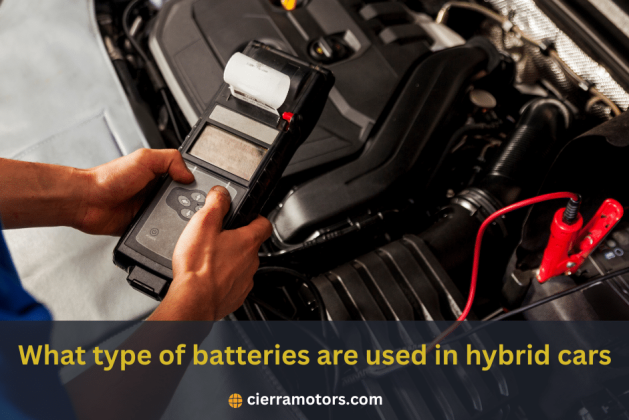
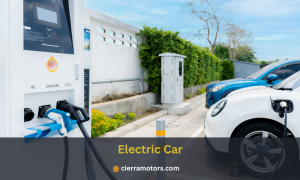
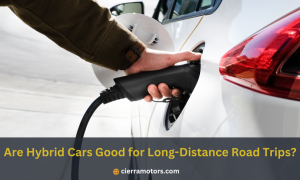
Leave a comment